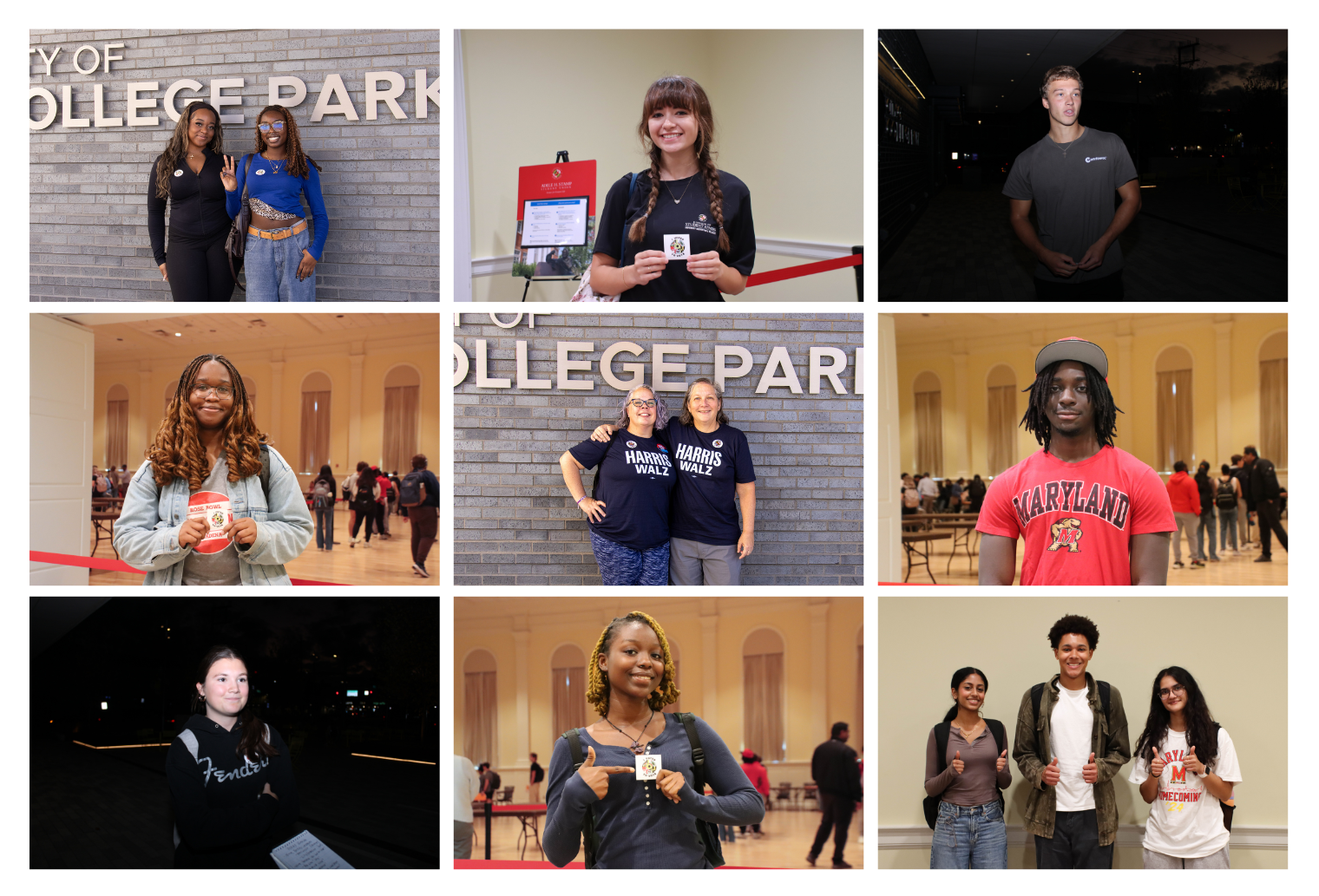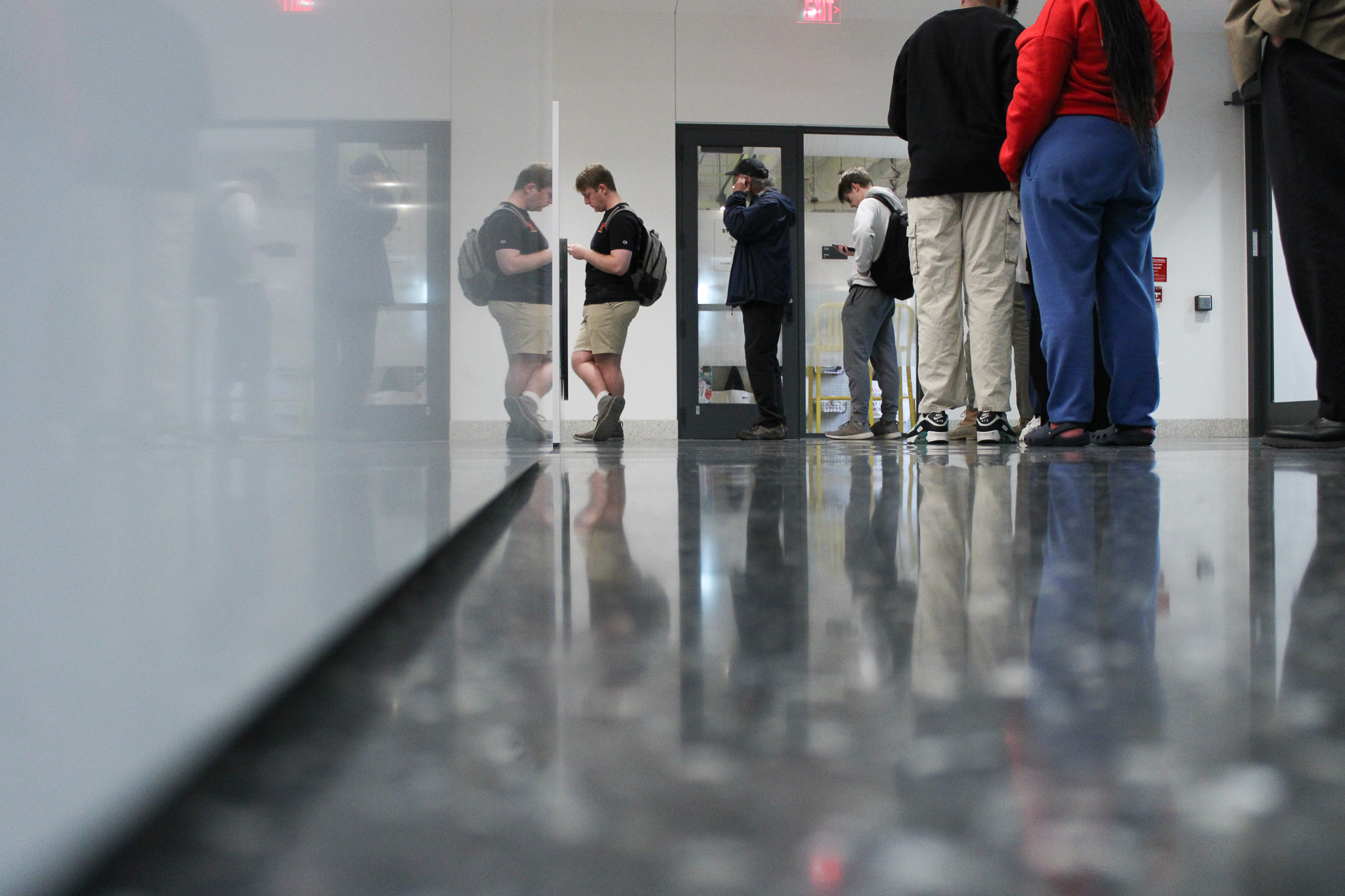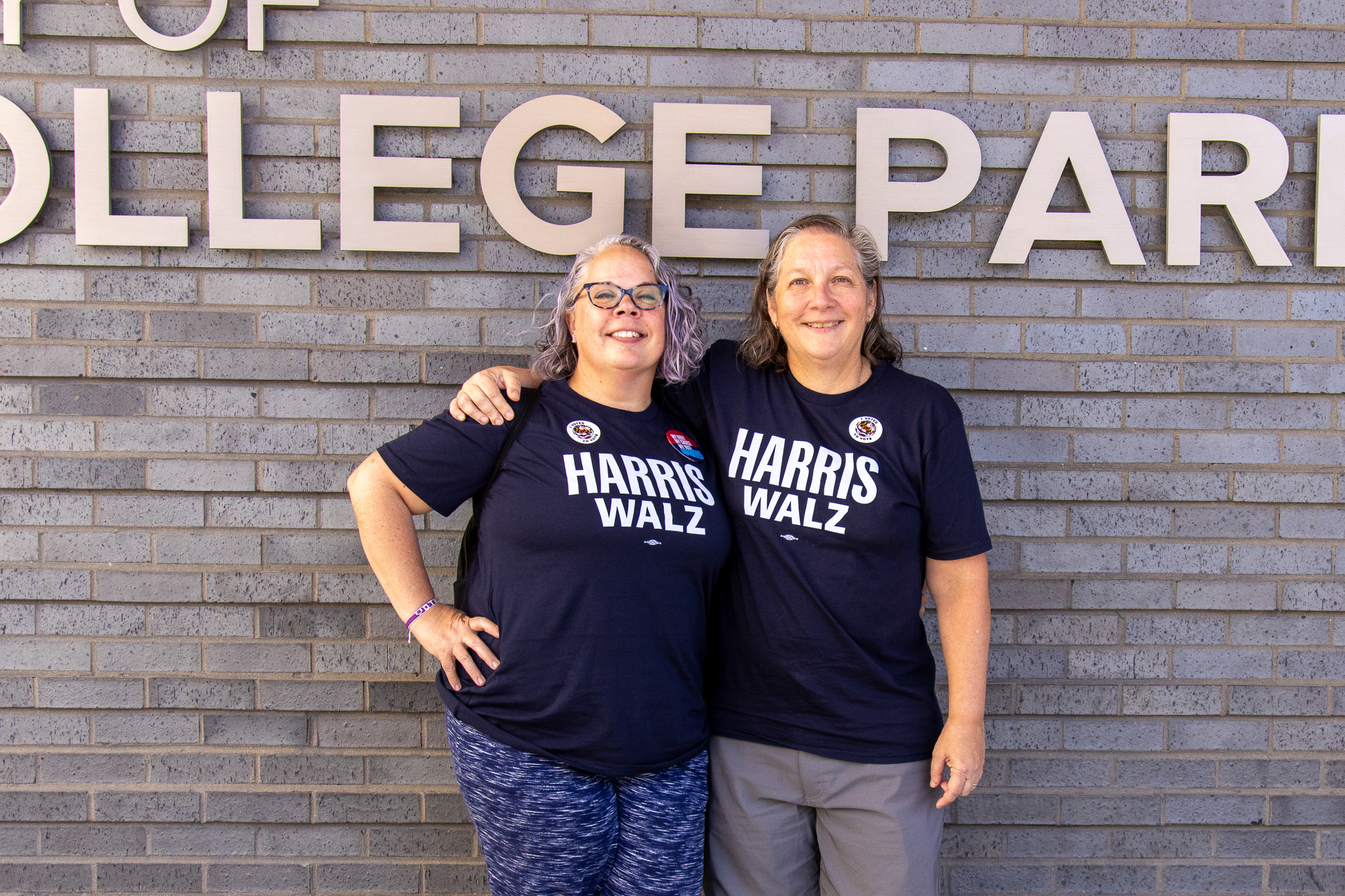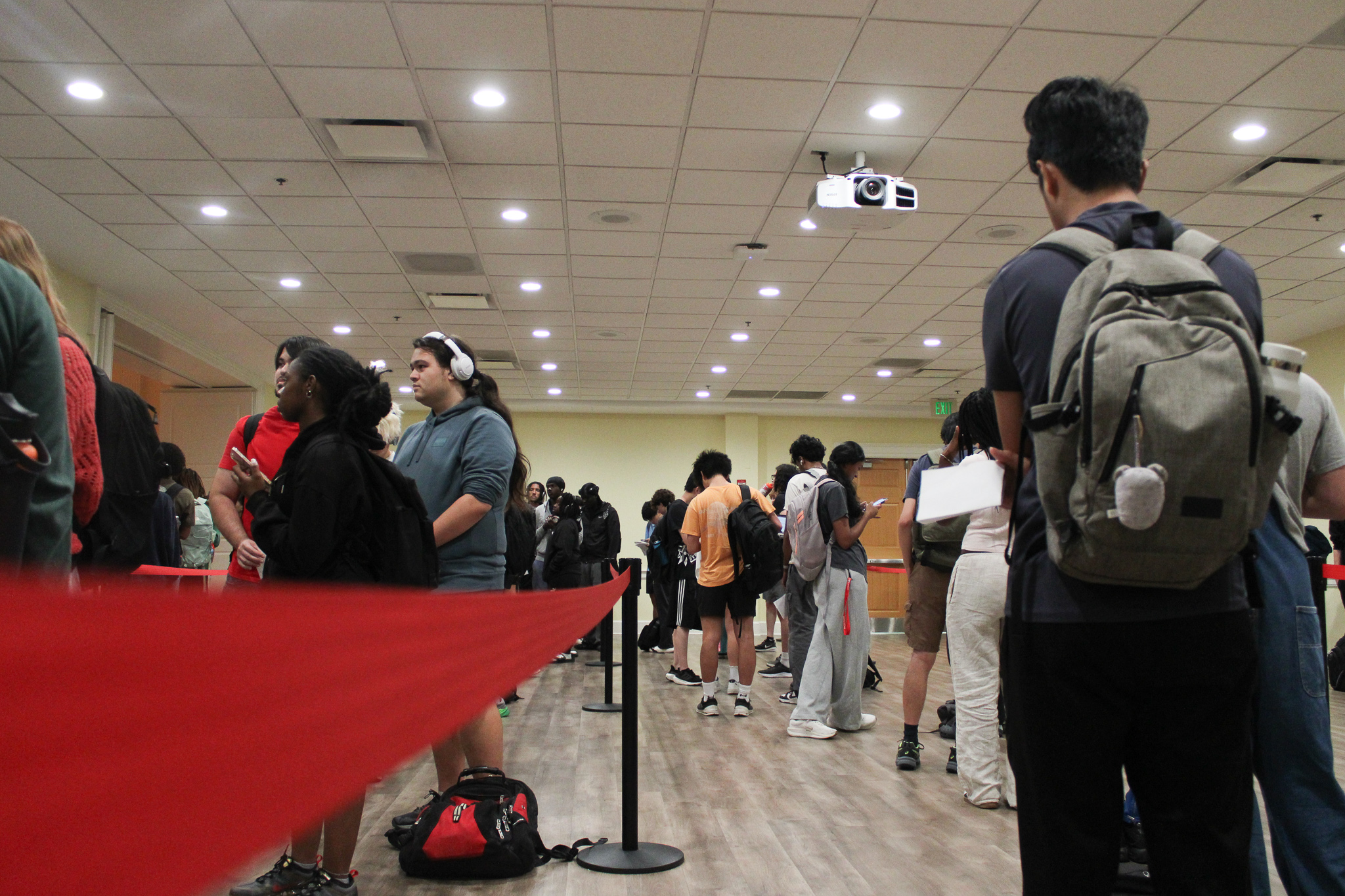By Sam Cohen, Marijke Friedman, Akshaj Gaur, Lillian Glaros, Keira Hardesty, Audrey Keefe, Talia Macchi, Oliver Mack, Pera Onal, Nicole Pilsbury, Irit Skulnik, Sanya Wason and Natalie Weger
University of Maryland students and College Park community members headed to the polls Tuesday to vote in national and local elections.
Voters went to Stamp Student Union and College Park City Hall to cast their ballot for the United States presidential race, Maryland’s open U.S. Senate seat and Maryland’s reproductive rights referendum, among other key races.
Many students at this university cast a ballot for the first time on Tuesday.
[The Diamondback’s 2024 election coverage]
Senior information science major John Williams said he voted for the first time to take part in decisions about his future.
“It became a more prevalent thing for me to be involved in the future that I’m trying to create,” Williams said.
This year’s election was headlined by the presidential race between Vice President Kamala Harris and former President Donald Trump.
Trump was elected the next president of the United States early Wednesday after he secured Wisconsin and crossed the 270 electoral votes threshold, the Associated Press reported.
Harris would have been the United States’ first female president and its first Asian American president if elected. Harris would also have become the second-ever Black president.
“As a woman voting for a woman, I got a little emotional circling in Kamala Harris, just because I’ve never been able to vote — let alone for a Black woman,” senior government and politics major Anna Meringolo said.
Meringolo said she thinks a candidate’s character and morals are important in addition to policies. Candidates shouldn’t speak poorly about minorities or communities they may not agree with, she added.
“The person can have great policies, but if they are not a stand-up citizen, I don’t see how you could vote for them,” Meringolo said.
College Park residents Jennifer Cormeny and Joanne Correira arrived at the polls in support of Harris and her running mate, Minnesota Gov. Tim Walz.
Democracy and reproductive rights were key factors in their decision to back Harris, the pair said.
Yakirah Rosen — a university alum who works in Congress — cast her ballot for Trump. Rosen, who cited national security as a priority, hopes Trump will focus on border security to address illegal immigration.
Rosen, who said she opposes abortion, added that she hopes the U.S. will become “pro-family and pro-religion again.”
Like Rosen, College Park resident Anita Jewell said she is voting for Trump for the third time. Jewell said she has not liked the direction the country has moved in since President Joe Biden was inaugurated in 2021.
“I don’t agree with anything that Kamala Harris is trying to push on people,” Jewell said. “I think that she’s going to carry over all of her past agendas … into the country.”
Voters also decided Maryland’s open U.S. Senate seat between Prince George’s County Executive Angela Alsobrooks (D) and former Gov. Larry Hogan (R).
Alsobrooks won the seat, according to the Associated Press.
[Angela Alsobrooks wins Maryland US Senate race]
Hogan’s record as former governor persuaded Jewell to vote for him, she said. Hogan “did a great job” and stayed true to his promises as governor, Jewell added.
Maria Pascual, a sophomore dietetics and human development major, voted for Alsobrooks in hopes of keeping the U.S Senate in a Democratic majority.
Pascual, who voted for the first time since becoming a U.S. citizen, said voting in this year’s election felt “surreal” and “nerve-wracking.”
Like many other voters, Pascual said reproductive rights were on her mind as she headed to the polls.
Marylanders overwhelmingly supported a referendum on Election Day to codify the “right to reproductive freedom,” including access to abortion and birth control, in the state’s constitution.
[Maryland voters codify reproductive rights in state constitution]
Sophomore public health science major Alexa Grossman voted in support of the reproductive freedom amendment.
Grossman, who is from New York, said she cannot imagine living in a state where getting an abortion, even for health reasons, is illegal.
“Abortion is a big [issue] for me as a woman who loves a lot of other women and has a lot of other women in my family,” Grossman said.






